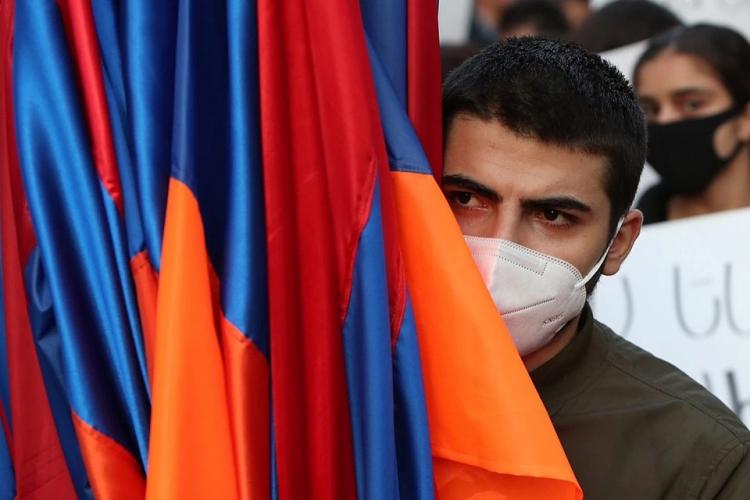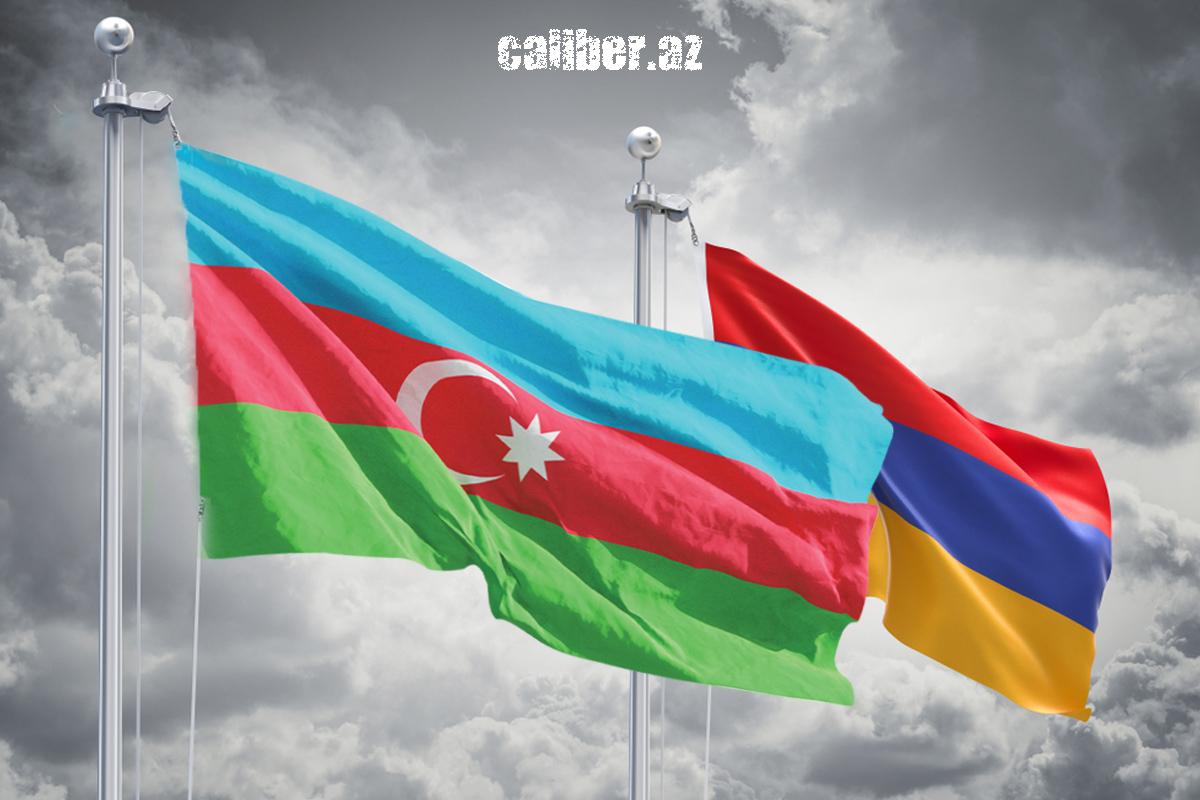"Peace agreement with Baku is a matter of survival for Pashinyan" Dmitry Solonnikov for Caliber.Az
Caliber.Az had an interview with Dmitry Solonnikov, director of the Russian Institute of Contemporary State Development.
- How do you assess the level of protest movements in Yerevan? Do you think there is a threat of changing the incumbent authorities in the country?
- The protest movement in Armenia, as we see it, is not very large. The number of protesters in Yerevan itself did not exceed 2-3 thousand people, and now this figure has decreased even more. That is, the protest level does not go beyond the two opposing factions in the parliament and the traditional support in a society that the supporters of Kocharyan and Sargsyan had at the moment. So there is no expansion of actions, but we periodically read statements by Armenian experts and politicians that it is the people in the square who represent Armenian society, who are its nucleus. There are also some strange assertions that Russia when negotiating with the current authorities, does not receive a mandate from the Armenian society under these agreements.
Of course, all these fabrications are nonsense. The election showed that it is the current government in Yerevan that has a mandate for any international talks with Russia, Azerbaijan, and Türkiye. And the small group of people in the square, supposedly representing the society, is nothing more than PR with no real game. Pashinyan's delaying real social changes in society will only increase the protests. After all, he was supported, so there were expectations that after the end of the confrontation in Karabakh (after he signed the agreement on November 10, 2020) changes will occur. There will be positive changes both in trade with Türkiye and in the relationship with Azerbaijan, and there will be opportunities to activate trade relations with Russia. For all this, the agreements should be implemented, the transport-logistic communications should be opened, and it would change the life in Armenia noticeably. And the more this process is delayed, the less certain the population is that these changes will occur under Pashinyan. I think the protests can grow further, especially since summer is ahead when it is easier to involve young people in street actions.

- Do you consider a new military clash in Karabakh possible, given the revanchist moods of the Armenian opposition?
- Not under the current government. The likelihood of a new military clash between Armenia and Azerbaijan is unrealistic. Pashinyan will not agree to any military clash, because it would mean the end of his political career. It is clear that no agreements on transport and logistics links will be implemented in the event of hostilities, nor will Armenia's socio-economic situation improve. Pashinyan lost one war and will lose another. He does not need it from any point of view, so military clashes will not take place under the current government, even if revanchist sentiments increase. But if Pashinyan fails, which is unlikely, there may be provocative actions by revanchist politicians to drag Russia into the war and arrange a multilateral conflict.
- Is Moscow planning to resume arms deliveries to Armenia?
- It is possible to supply arms to Armenia through the CSTO. In this regard, Moscow will adhere to all its agreements with Yerevan; no one has canceled their military-technical cooperation either within the framework of existing treaties or new agreements. This is possible, and there is nothing supernatural in that. The current Armenian government is capable of modernizing its army, and every state in the world is modernizing its army one way or another. It is not aimed against anyone under the current government, but in the case of the CSTO, Armenia's allied army should meet all the requirements that exist in relation to all other armed forces.

- Do you think the signing of a peace agreement between Baku and Yerevan is possible in the foreseeable future?
- The signing of a peace agreement is a matter of survival for Pashinyan. If he fails to sign a peace agreement with Baku, the situation in Yerevan will only worsen. Pashinyan is being dragged into a very difficult situation; the opposition wants to portray his policy line as a policy of betrayal of Armenia's national interests, which of course is far from being the case. No matter what, he must continue this policy and sign a peace agreement with Baku, and if necessary, even show rigidity in political terms. I believe that Pashinyan is likely to pursue such a direction in order to realize the signing of an agreement in the nearest future.
- How would you assess Moscow's stance on Baku and Yerevan?
- Moscow perceives very negatively when they try to play dirty tricks on it. When they try to frame it, they try to use the country's foreign policy in someone's interests, without agreeing with Russia and acting along the lines of "we will play a trick on you on the sly". This is a very negative trick, and the representatives of the Armenian opposition are wrong in this regard. The more they try to play a trick on Moscow, the more they will lose contact with it. It is clear that both Kocharyan and Sargsyan have connections in Moscow and among the leadership of the Russian Federation. There are structures (Kremlin towers) in Moscow, there are political figures and lobbying organizations including those aimed at cooperation with Kocharyan and Sargsyan. But their influence there will be less and less if they continue to use official Moscow without coordinating their actions with it. Therefore, the Kremlin may be irritated with the way the current Armenian opposition uses the Moscow factor and the connection of the current Armenian opposition to the Western partners, which is becoming more and more noticeable. The intensification of political processes in France inevitably leads to the rise of political sentiments in Armenia. It is ridiculous to be so dependent on France! If Kocharyan and Sargsyan frequently speak of their pro-Russian stance, then there is no need to play up to Macron's interests. Yes, Macron is in a difficult situation because of the parliamentary elections, but let us do something to support him and show his political successes if not in Ukraine, then at least in Armenia. It's ridiculous... In this regard, the inconsistency of Armenia does not arouse any enthusiasm in the official Kremlin. Stable, systematic, and organized relations with Baku win by an order of magnitude.
- Do you share your colleagues' optimism about the normalization of Armenian-Turkish relations?
- Generally speaking, there is optimism. It is of paramount importance for Pashinyan. And as I said, if he is able to resist provocations and normally complete the current processes, Armenian-Turkish relations will be restored and an agreement will be signed between Armenia and Azerbaijan.








